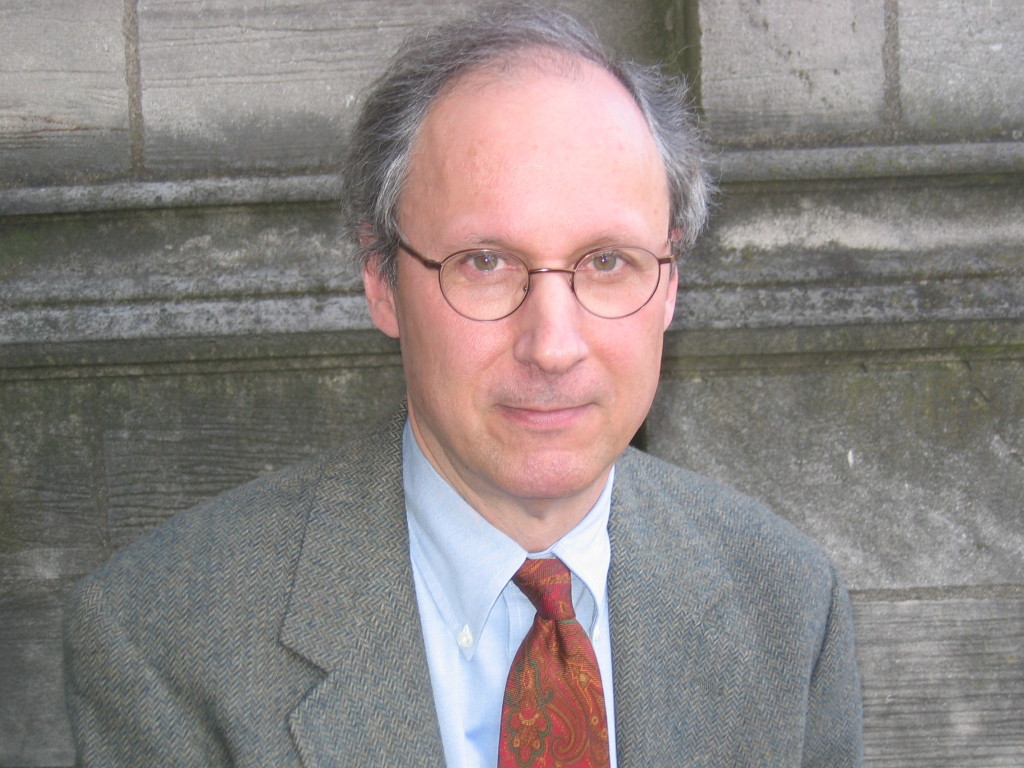Welcome to ‘under the spotlight’, a monthly interview series which offers a snapshot from academics’ lives: their passions, interests and reading suggestions – all summarised in less than ten minutes. You can catch up with previous posts here.
This month we hear from Philip Nord, Rosengarten Professor of Modern and Contemporary History and Director, Shelby Cullom Davis Center for Historical Studies at Princeton. Philip’s most recent monograph, France 1940: Defending the Republic, was published in 2015 and the French translation of France’s New Deal was released in 2016.

In the length of a tweet (140 characters), what is your research about?
I’m interested in democratic government: how it came to be, how it lives and sometimes dies, and how it has changed over time.
What was your motivation for researching French history?
I first encountered France through novels and the Impressionist collection at the Art Institute of Chicago. But I also went to college in the late 1960s, and at that time, politics took precedence over all. France, of course, had politics in creative abundance: from the revolutionary Left and socialism à la Jaurès and Blum to right-wing movements of every kind—anti-Dreyfusard nationalism, Pétainisme, Poujadisme. So, it was the politics that drew me into French history, but once drawn in, I learned that culture was not isolated from political life, not in France, but implicated in it and that, in doing French history, I could pursue at one and the same time the two subjects—politics and culture—that mattered to me most.
You’re given a time machine for one day. Where would you go? What would you do?
I know that I should take advantage of the opportunity to change history, but can history be changed? Maybe I should settle for being a witness to past events. I would like to have heard de Gaulle’s June 18, 1940 appeal or Martin Luther King’s “I have a dream” speech. Or why not return to joyful events in my own life, the births of my children for example, and experience that joy again?
Who would you invite to your French History fantasy dinner party?
I can imagine two sets of dinner guests: Jaurès, Blum, and Mendès France or Robert Antelme, David Rousset, and Charlotte Delbo.
What have you found most rewarding and most frustrating about your career?
I have colleagues in German history, and I’ve learned from them how mean and vindictive colleagues can at times be to one another. That has not been my experience in French history. There is a remarkable level of collegiality in the field, and I include my French colleagues in this assessment. It may be that as a foreigner, the French give me a break that they wouldn’t give to one another. As for frustrations, that’s easy: French history is not honoured in the American academy the way it once was. There may well be good reasons for this, but it’s still a frustration.
What one change would you like to see in Academia during the next 5 years?
In recent decades, universities in the US have given increased priority to science and engineering, while at the same time relegating the humanities to second-tier status. It would be a good thing if the trend were reversed, but that won’t happen.
If you weren’t in your current role, what would you be doing?
The job market crashed the same year that I entered graduate school, so there was much discussion among my cohort about what to do in case an academic job failed to come through. I remember thinking about law school without much enthusiasm. I might have gone into business had push come to shove, but it didn’t, and I’m glad of that.
What key piece of advice would you offer postgraduates/early career academics?
The job market is not welcoming at this time. Enter into academic life, by all means, above all if the calling is strong, but do so in a clear-headed way. As for the choice of a dissertation subject, don’t pick a topic because it’s in vogue—it may no longer be by the time you’re done. Pick rather a topic you believe in and that compels you. You’re going to have to live with it for some time to come.
A few quick-fire questions…
Archives Nationales or Archives Départementales?
I have a fault (among many): I am Paris-centric. As a result, I have done most of my research in Parisian libraries and archives (the Archives Nationales included).
Writing in silence or to music?
Silence.
Best conference you’ve ever been to?
The most memorable was the first: a meeting of the American Historical Association in Chicago in 1974. I was there not because I was looking for a job or delivering a paper but because I was home on holiday and curious to learn what the profession of History was all about. I heard Eric Cochrane speak; I attended a panel on early modern urban history, at which Natalie Davis made an impassioned intervention from the floor. I came away thinking I had made a good choice of career.
REF or TEF?
???
Typed or handwritten?
Typed. My handwriting is atrocious and almost illegible, even to me.
Éclair or saucisson?
Éclair. I have eaten sausage with warm potatoes in a vinaigrette sauce many times, a dish I very much like. But I also remember working in an archive in winter and coming home late in darkness several days running. I would buy an éclair at a bakery along the way, a treat that picked up the spirits.
***
Many thanks to Philip for taking part. If you’d like to suggest someone to feature on the blog, then let us know via @FrHistNwk.


